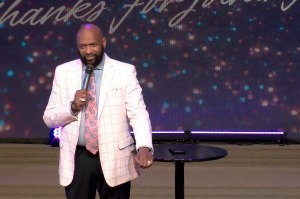Add Europe's Debt Crisis to List of US Fiscal Problems, Experts Warn
The European debt crisis will be felt in the United States and present significant challenges to U.S. fiscal policy, according to a Thursday panel discussion in Washington, D.C., hosted by The Concord Coalition and Committee for Economic Development. While many Americans may assume that Europe's problems are not America's problems, this is not the case, the panelists warned.
The United States is already facing a "fiscal cliff" due to pending tax increases, defense spending cuts, expiration of unemployment benefits, and congressional wrangling over an increase to the nation's debt limit, noted U.S. Senator Kent Conrad (D-N.D.), the keynote speaker for the event. Additional uncertainty comes from the potential showdown with Iran over the development of nuclear weapons, which would put strains on the oil supply. The European debt crisis will add to these challenges.
"The biggest fiscal danger from Europe comes through the interconnectedness of our economies. Europe could induce a slowdown in the United States, which would mean higher deficits, and neither our economy nor the federal budget is in strong enough shape to easily handle new short-term shocks," wrote Edmund Andrews, former economics correspondent for The New York Times, Joseph Minarik, senior vice president and director of research at the CED, and Diane Lim Rogers, chief economist for Concord Coalition, in a report released by Concord Coalition in conjunction with the event called, "Not Just Their Problem: Europe's Debt Crisis and U.S. Fiscal Policy."
The U.S. economy is much more interconnected with the global economy today, the report demonstrates, than it was just 10 years ago. Additionally, U.S. exports to Europe and to nations that also export to Europe, are a source for current economic growth. A slowdown of the economies of Europe will, therefore, likely become a drag on the U.S. economy.
Conrad recalled a recent conversation he had with a board member at Ford Motor Company. The company is preparing to close four plants in Europe and the other car companies are making similar plans, Conrad was told.
The most difficult problem for the United States, Conrad said, is how to simultaneously deal with the nation's long-term debt problem while not making the current economy worse. The answer, Conrad believes, is to stimulate the economy now by spending money on rebuilding the nation's infrastructure while also reforming taxes and entitlements to reduce deficits in the long run. If more money were spent on infrastructure in the 2009 stimulus bill, Conrad argued, the United States would be in much better shape today. The biggest challenge, though, according to Conrad, is reforming entitlements, especially those related to health care -- Medicare and Medicaid.
Conrad, chair of the Senate Budget Committee, has a reputation for being a "deficit hawk" on budget matters. He served on the "Simpson-Bowles" commission and has been trying to get the commission's recommendations passed in the Senate.
The biggest impediment to implementing the necessary changes that would address the fiscal challenges that lie ahead, according to Conrad, is a lack of support among Americans.
"Congress, like it or not, by and large reflects public opinion. These people are elected, many of them want to be reelected. And they know, if they are going against public opinion, their chances of getting reelected are greatly diminished."
"The American people say they want to fix the debt and deficit problem, but when you ask them specifics of what it would take, they reject virtually every one."
The only part of the federal budget that a majority of the public is willing to cut is foreign aid, Conrad said to laughter from the audience. Foreign aid comprises only one percent of the federal budget.
The only sources of additional revenue that has majority support among Americans is raising taxes on the "wealthy," however defined. In order to solve the fiscal problems through increasing taxes on the wealthy, the top tax rate, which is income over $200,000 for individuals, would need to be increased to more than 70 percent, "which would do wonders for our competitive position," Conrad said sarcastically.
"We've got to do a much better job," Conrad said, "of educating the public as to how you address this problem, what the consequences of failure would be, and that we have to have a strategy" that addresses both the economy in the short term and the debt in the long term.





























